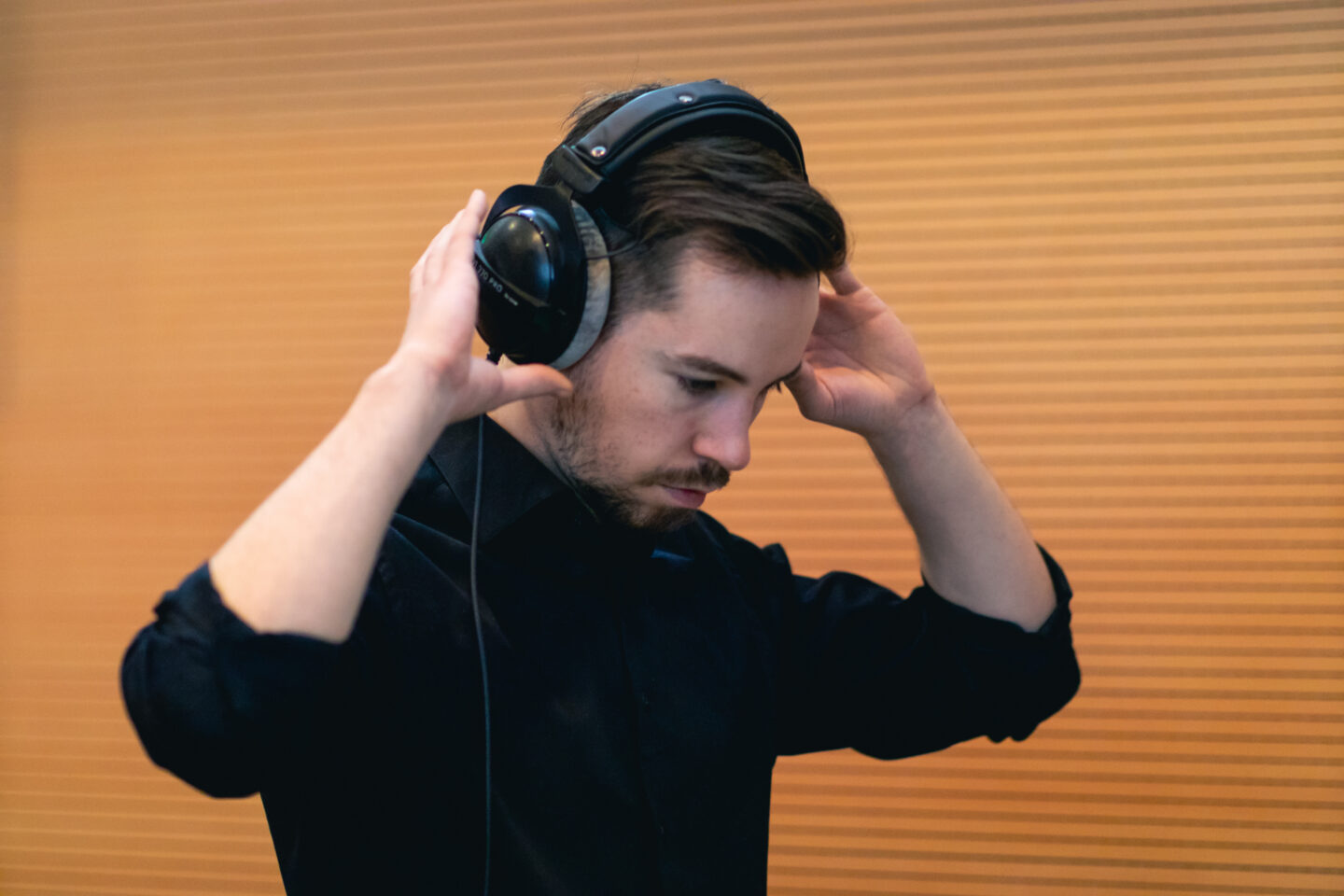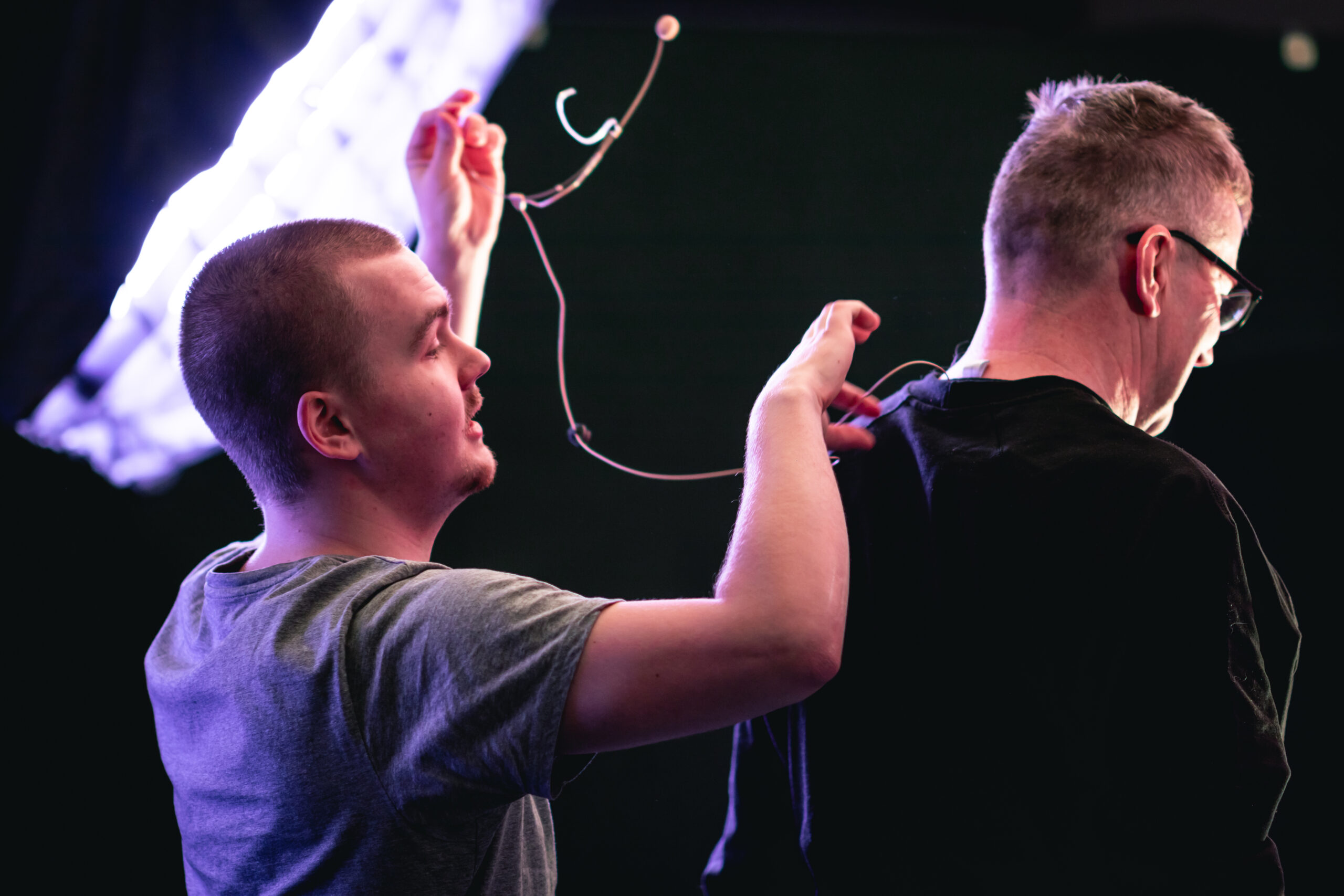What is the impact of sound system?
Good sound system has a direct impact on the clarity of your communication. Not only is it important to ensure that the sound is evenly distributed throughout the room, but also that it is pleasant to listen to. Using quality microphones, a skilled sound engineer will achieve the main goal of speech reproduction in any situation: when it is not negatively affected, it works!
The functionality of the sound system has an impact on audience participation. Imagine a situation where the back row has to struggle to hear the speaker. In addition, the sound feels somehow clunky and unfinished. When participants can hear the speaker clearly, they are more likely to be actively engaged in the event. The quality of the sound also has an impact on the confidence of the speakers, which in turn engages the audience, keeping them interested throughout the event.

High-quality sound conveys a professional image
Meetings and congresses are professional events where participants expect a certain level of sound quality. A good sound system conveys a professional image of the event organiser, reflecting care and commitment to providing a seamless experience for participants. Poor sound quality can create a negative impression and detract from the overall quality of the meeting or congress.
A good sound system is also important for inclusiveness. A hearing impaired participant often needs a high quality sound system to fully enjoy the event. Language issues must also be taken into account: high quality sound systems make a significant contribution to intelligibility in situations where audience members are listening to presentations in a language other than their mother tongue. It does not have to be a lecture in English for a Finnish audience, so the importance of the sound reproduction becomes even greater. Properly amplified and clear sound ensures that all participants – regardless of their hearing ability or language skills – can fully participate in the congress and benefit from what the speakers are sharing.
Sound system for hybrid events
Increasingly, meetings and congresses are being organised as hybrid events, where audio issues affect both remote participants and those present. Hybrid implementation requires a slightly more complex technical arrangement for the sound system, and it is very important to prepare for this in advance. As events often involve the presentation of research findings, policy debates or important announcements, high quality recording of speeches is sometimes necessary for documentation and archiving purposes.

What does sound system need?
A sound system is basically made up of microphones, a sound mixer and loudspeakers. Sometimes, speakers are connected to their own floor monitor, a loudspeaker, from which they can hear their own voice clearly. An audience-friendly sound system is not necessarily good for the speaker: their own voice may sound strange or echoey if the floor monitor is not used when necessary.
Microphones
The most important thing is to use microphones of sufficient quality and to position them so that the speaker is close enough to the microphone. Expensive loudspeakers and an excellent mixing desk cannot convert a poor original signal into a high quality one – or at least it is very difficult. A hand-held mike should only be used at a distance of a few centimetres.
Sound mixer
A sound mixer allows you to adjust not only the volume levels but also the quality of the sound. It is typical that, with a particular microphone, when used by a particular speaker and in a particular room, certain frequencies are unfavourably accentuated. The basic task of the mixer is to balance these frequencies. In addition, headset-type microphones in particular are prone to rotation, but fortunately there is a lot a professional can do about this. At the mixing desk, the technician also makes the different microphones sound as consistent as possible, so that when the speaker changes, the sound does not change radically.
Loudspeakers
It is useful to think of loudspeakers as a kind of torch. Imagine you are standing on stage and there is a pitch-black hall full of listeners in front of you. Your task is to illuminate all the participants as evenly and neutrally as possible. Just as flashlights can have a narrow or wide beam, loudspeakers have different opening angles. Just as a torch acting as a keyring is not enough to illuminate even the front row, it is important to choose a sound system that is sufficiently powerful. In addition, the quality of the sound system is reflected in its ability to reproduce the sound signal spoken into the microphone as naturally as possible and with the greatest respect for the original sound. Using the flashlight analogy, one might think that the light should be as natural and soft as possible, rather than illuminating the audience with, say, a monochrome laser beam. To sum up, the choice of sound system is always based on the intended use. It is important to choose the right system for your needs.
Often, meeting rooms have a sound system already integrated into the room, which is ideal for meetings, especially those of a simpler technical nature. However, it is highly recommended that you visit the venue beforehand to test how the microphones work. Especially in the case of a hybrid event, the sound system should be tested beforehand.
Why order a sound system as a service?
The answer to this question is obvious if you don’t have your own sound system! However, there are other important reasons for ordering a sound system as a service – whether or not the venue has an existing system.
If there are several speakers, the supplier of the sound system will take care of changing the microphones. This is surprisingly important both for the technical functionality and fluidity of the event and for the experience of the speakers. A courteous technician in charge of microphone changes leaves the audience with a professional impression of the organiser. Particularly in the case of inexperienced speakers, the encounter with a helpful mixer will give them more confidence.
In a situation where remote speakers are involved or the event is being streamed, outsourcing the sound to a professional gives a lot of added value and security. It is typical, for example, that without proper preparation the sound will not be loud enough to be heard on the stream, but in the room the sound is already too loud. In the worst case, the sound will wander around and no reason can be found.
Although often part of a larger technical package, sound reinforcement can be considered one of the most important elements of a good event. However, when organising an event, your energies should be focused on much more important things than microphones or sound systems, which is why outsourcing your sound reinforcement service offers peace of mind, ease and security in the hustle and bustle of event preparation!

